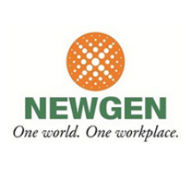

Appian and Newgen OmniFlow are competing solutions in the business process management space. Newgen OmniFlow has an upper hand in terms of its extensive features, while Appian stands out for overall user satisfaction, particularly in support and pricing fairness.
Features: Appian's features include powerful process automation, a low-code development environment, and rapid application deployment. Newgen OmniFlow offers extensive customizability, robust document management, and an intuitive process designer.
Room for Improvement: Appian could improve by enhancing its customization options and expanding its feature set to better suit complex enterprise requirements. Newgen OmniFlow might focus on simplifying its setup process and improving its user interface to be more intuitive. Both products benefit from ongoing updates to address user feedback and industry demands.
Ease of Deployment and Customer Service: Appian provides rapid deployment with exceptional ongoing support, making it user-friendly and ideal for quick adoption. Newgen OmniFlow offers a flexible deployment model and robust support for enterprises needing both on-premises and cloud options, although it may require more effort during initial setup for complex environments.
Pricing and ROI: Appian offers a transparent pricing model favorable for mid-sized organizations, with a quicker ROI due to faster deployment and process optimization. Newgen OmniFlow, while incurring higher initial costs, offers a comprehensive platform that promises significant long-term strategic benefits. Appian is perceived as more cost-effective upfront, whereas Newgen's advantages become more apparent with strategic investments.

Appian is a unified low-code platform and solution used by businesses to build enterprise applications and workflows. This product adapts to the needs of clients and the technologies they are already using to combine their data in a single workflow and maximize resources. The platform has four main components through which it transforms the work process for companies of various sizes. They are:
Appian is utilized across a diverse set of industries, including automotive and manufacturing, energy and utilities, education, financial services, telecom and media, transportation, retail, insurance, healthcare, and life sciences. The most frequent use cases of Appian are customer journey, governance, risk and compliance, operational efficiency, supply chain, distributed order management, and environmental, social, and governance (ESG) management.
Appian Features
Appian has various features that allow users to create solutions for their businesses. These features can be separated into a few groups according to function, including automation, low-code application development, and integrations and data. Some of the most frequently used features of Appian include:
Appian Benefits
The benefits of using Appian include:
Reviews from Real Users
A practice leader - digital process automation at a computer software company values Appian highly because the product is easy to develop, low-code, and has a good user interface.
Alan G., an advisory board member at Codecon VR, Appian offers a clear application life cycle, easy to learn documentation, and comes with a fundamentals course.
We monitor all Business Process Management (BPM) reviews to prevent fraudulent reviews and keep review quality high. We do not post reviews by company employees or direct competitors. We validate each review for authenticity via cross-reference with LinkedIn, and personal follow-up with the reviewer when necessary.